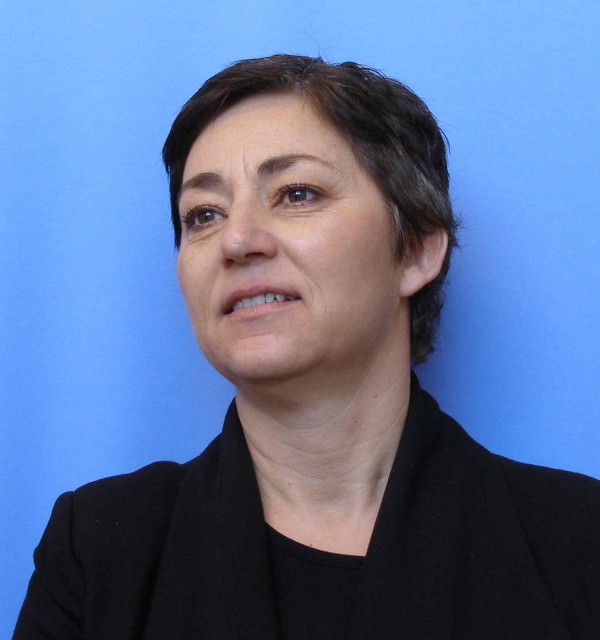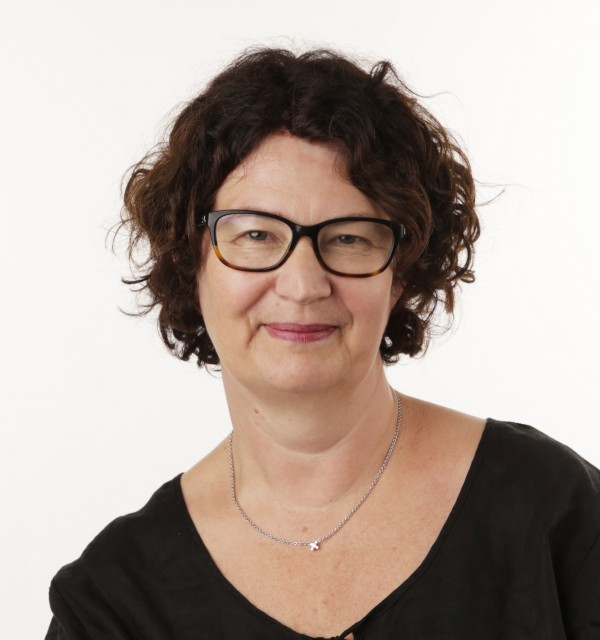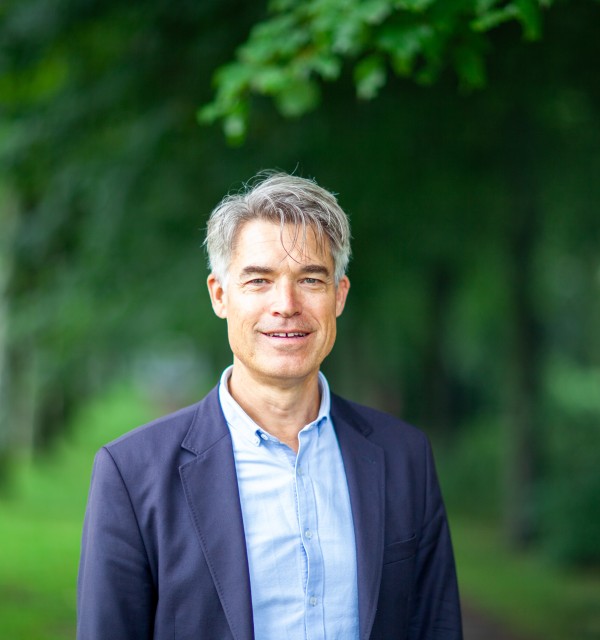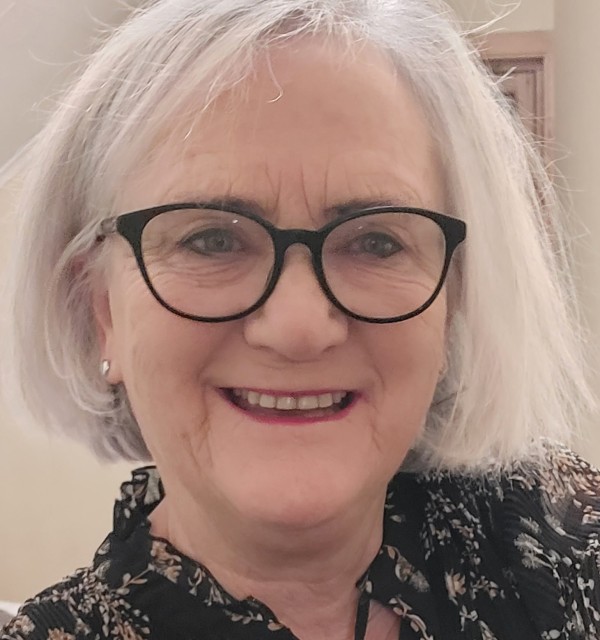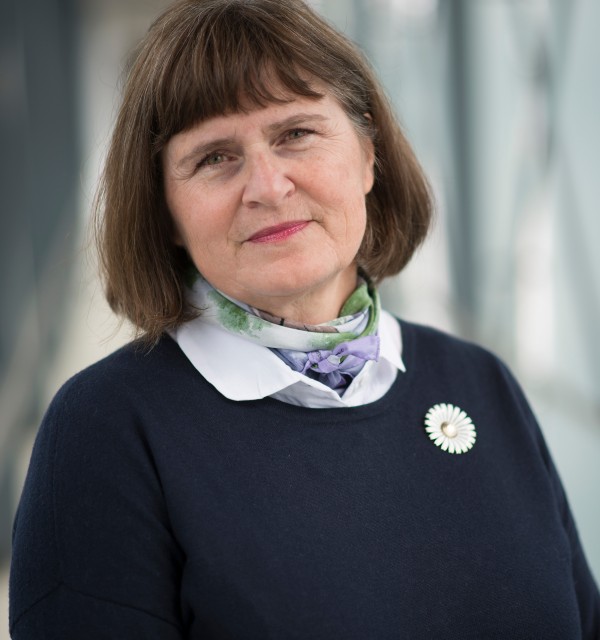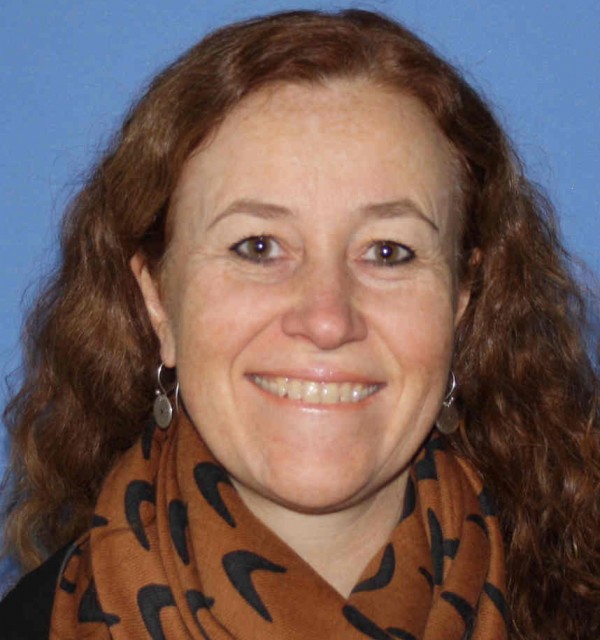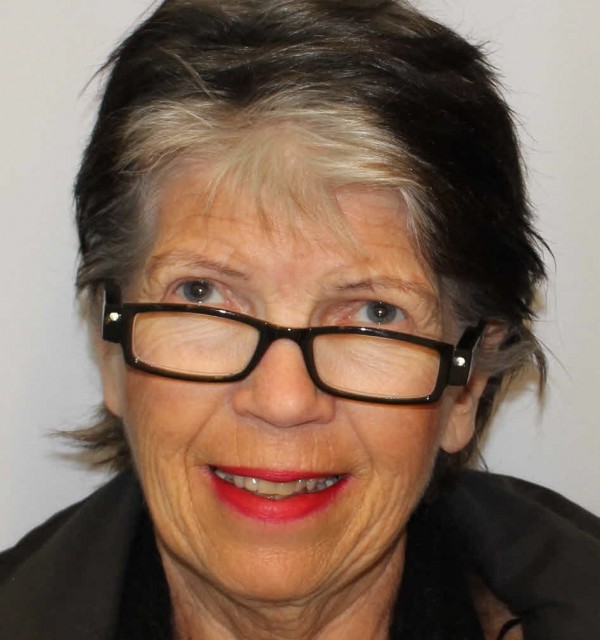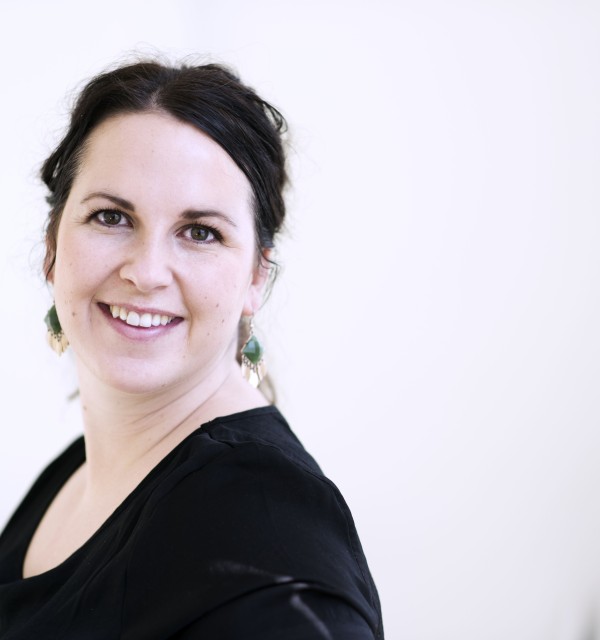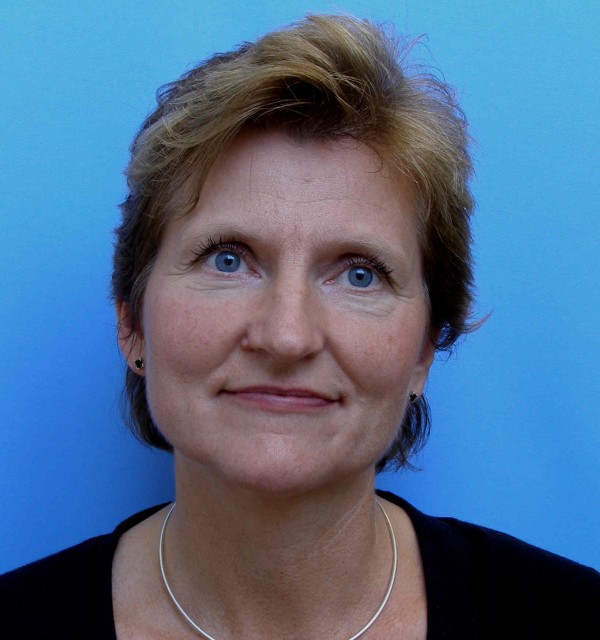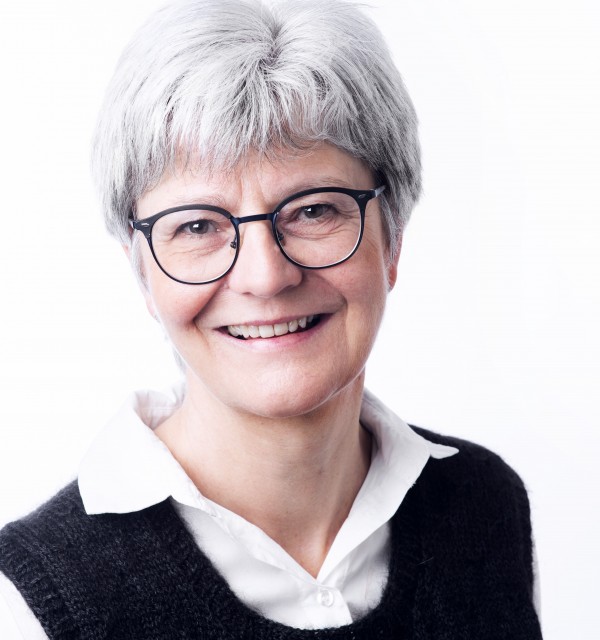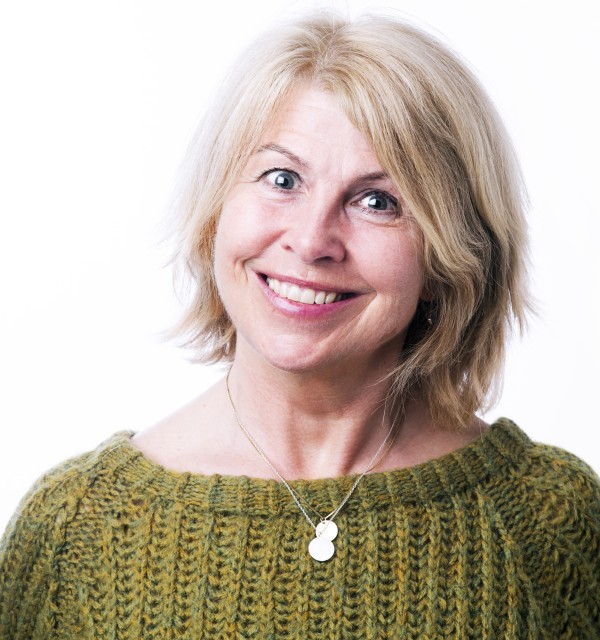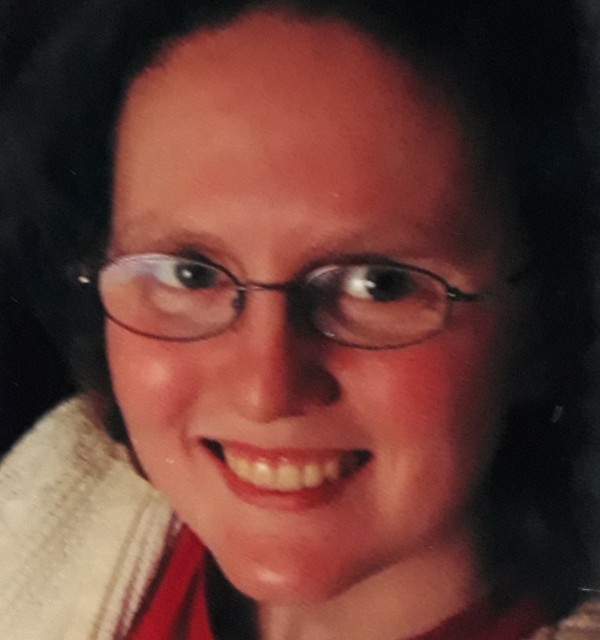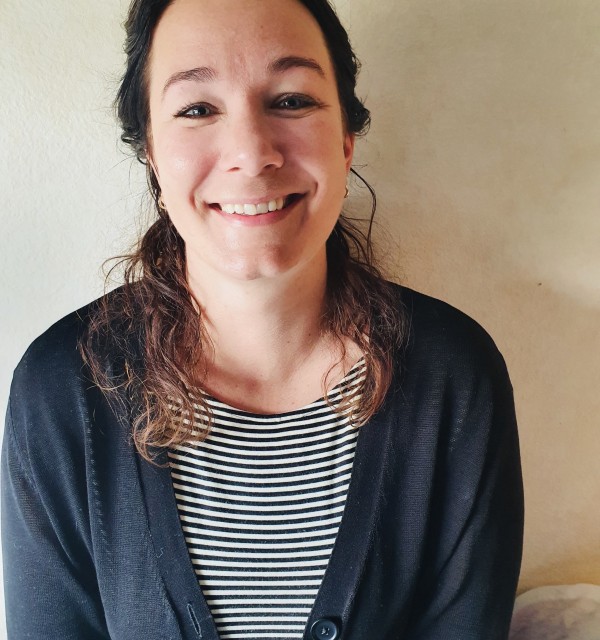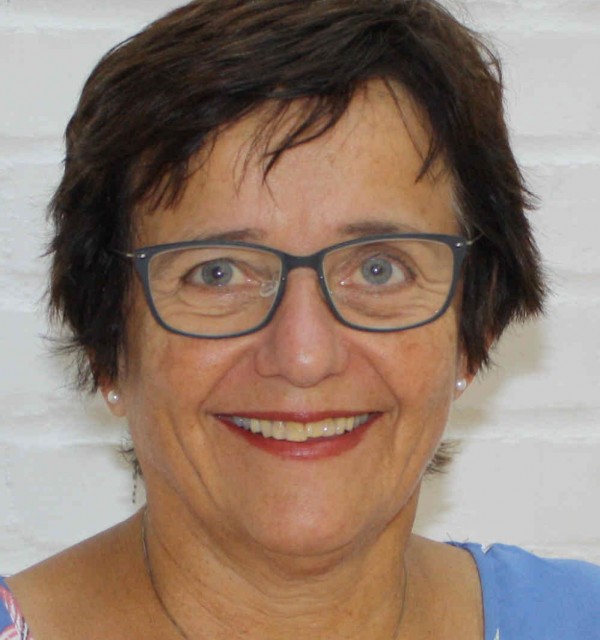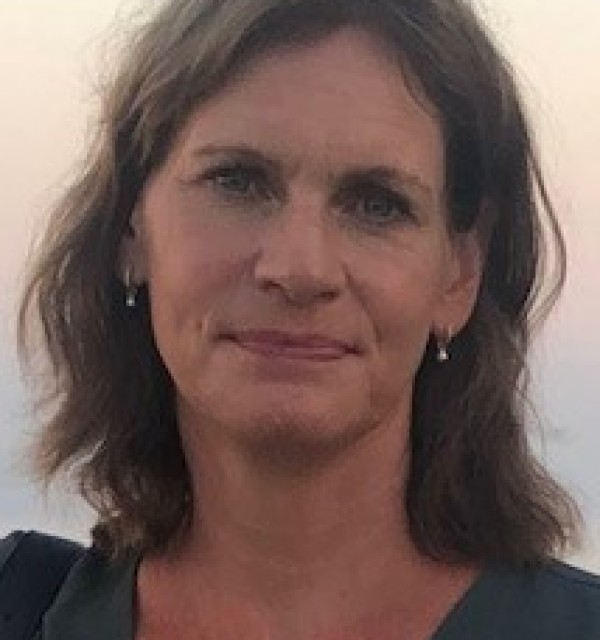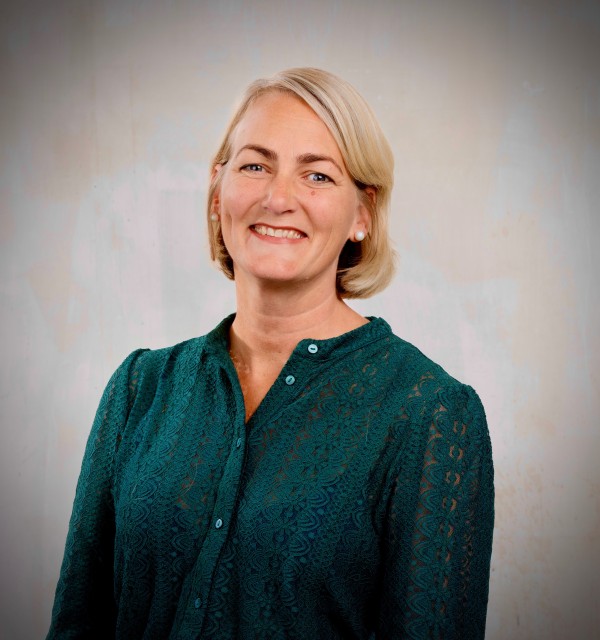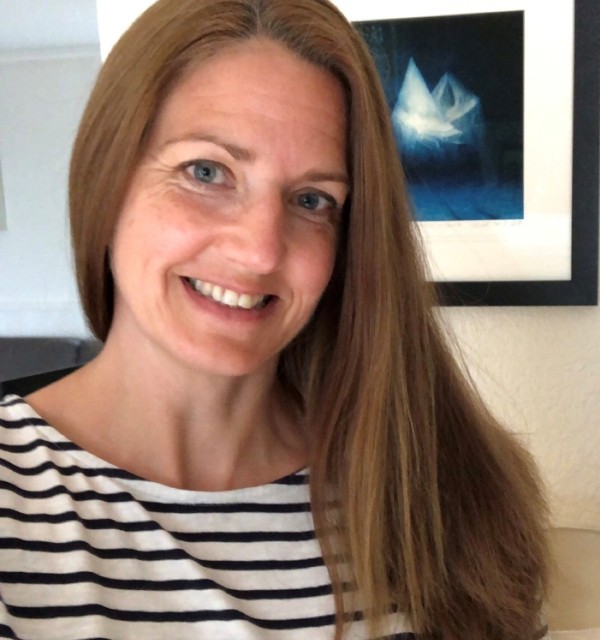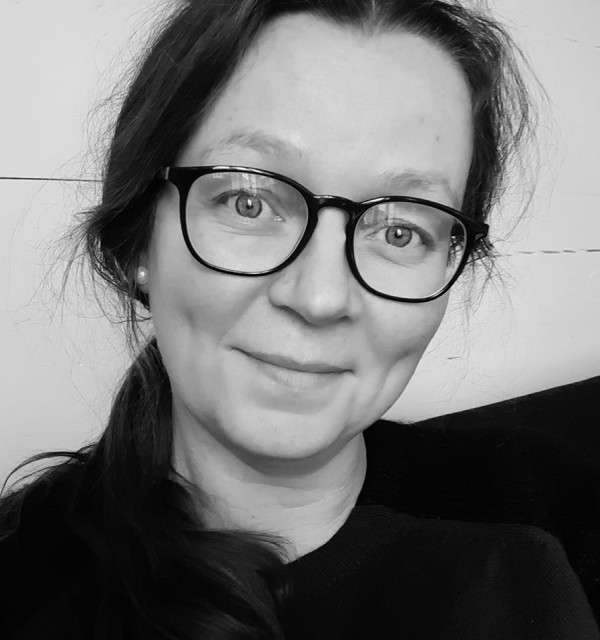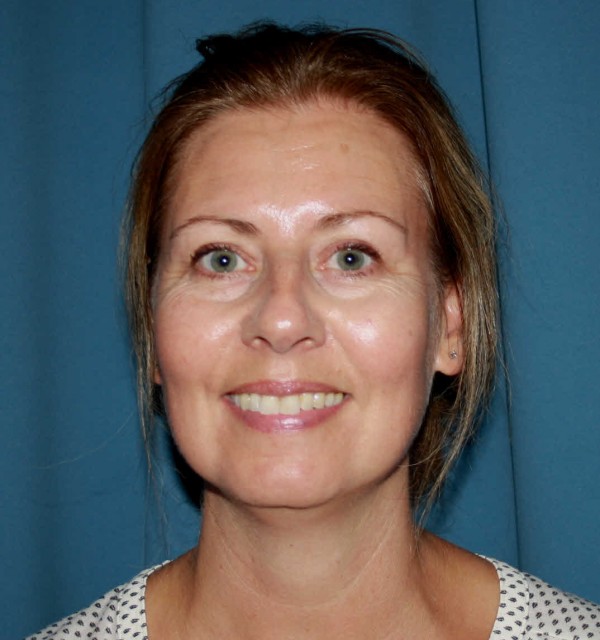Knowledge of patients' life experiences strengthens patient care. By exploring the patient's own experiences of health, illness and suffering, we want to strengthen patient care with a special emphasis on meetings between patients, health care professionals and carers.
27
4
Health problems are often complex, and many of them are related to the individual's subjective health perception. As the research group for life phenomena and caring see it, there is a gap between the patient's experienced suffering and the growing technical and procedurally oriented patient care. The group wants to introduce a framework for clinical practice, intended to contribute to fill the gap so that the patient's overall situation and experiences form the basis for a more comprehensive care.
Life phenomena can be understood as various ethical and existential phenomena of life itself. Increased insight about these life phenomena creates a possibility to draw attention to the patient experience which is fundamental for a good, professional and safe holistic care.
Caring is seeing the person with participating and intense presence, which makes senses, emotions, intellect and the drive to act, open and active in the situation. Caring involves understanding life phenomena in context.
Health care professionals should consider the patient's holistic situation and the importance of life phenomena. New knowledge in these areas can strengthen patient care and contribute to development in clinical practice.
Research projects
Listed below is a brief presentation of research projects associated with the research group.
Timely recognition and acknowledgment of end-of-life in hospitals
The project aims to explore doctors’ and nurses’ experiences with recognition and acknowledgment of End-of-life for patients with cancer.

In Western countries end-of-life (EOL) care has shifted to institutions and dying in hospitals has become more complex and medicalized. Healthcare personnel’s timely recognition of EOL is fundamental for reducing futile treatment, enabling informed decisions regarding the last days and weeks of life, and focusing on high-quality palliative care, helping patients to die with dignity. Timely recognition and acknowledgment of EOL is still a challenging area within the healthcare system. This study aims to provide a deeper understanding of recognizing and acknowledging EOL in patients with cancer from doctors’ and nurses’ perspectives.
A qualitative explorative design was applied, with data collected through individual in-depth interviews with 6 nurses and 6 doctors from medical and surgical wards in a Norwegian hospital.
The project was conducted in 2022-2023 and the project findings have resulted in two academic papers, one published and one submitted.
The project, which was a collaboration with Stavanger University Hospital, was funded with 880 000,- NOK from Folke Hermansen’s fond, in addition to own funding from the University of Stavanger.
Publication:
- Bakken, J. Wallgren, GC. Furnes, B. Kørner H. Ueland V. (2023) Organizational structures influencing timely recognition and acknowledgment of end-of-life in hospitals – A qualitative study of nurses' and doctors’ experiences. European Journal of Oncology Nursing. Vol 67, 102420
Project leader: Venke Ueland, professor in Nursing science, Faculty of Health Sciences, University of Stavanger
Life after cancer treatment - existential experiences
The project highlights existential experiences for people who survive cancer treatment and gathers knowledge on how the healthcare system can better assist them.

The project started in 2019 and is partly funded by Folke Hermansen's fund and research funds from the University of Stavanger. The research area is anchored in a qualitative and phenomenological research approach, with 21 qualitative interviews conducted. The project has resulted in three articles in scientific journals, one op-ed in the local newspaper, and several presentations to professionals in the cancer field.
The focus of the project has been to understand more about the existential experiences of the growing group of people referred to as 'cancer survivors', and to gain knowledge on how the healthcare system can better assist them.
More and more people are undergoing cancer treatment and this group of people are struggling with significant and long-term challenges after treatment. For many, going through cancer treatment means experiencing a new reality, with late effects and side effects after the treatment. Many struggle to find a new ground in life, an new identity after cancer treatment. Late effects affect many aspects of daily life, with fatigue, exhaustion, sleep problems, concentration difficulties and various painful conditions.
Behind the physical suffering resulting from cancer treatment, there may also be an existential suffering. The study shows that it seems to be difficult to find a foothold in everyday life. The existential burden points to an experience of loss at not recognizing oneself anymore. Thus, the post-cancer treatment period can involve struggling to adjust to a changed existence. It is important to have such knowledge as existential experiences when caring for cancer survivors. An expanded offer is necessary, where existential challenges and assistance in dealing with them are systematically included as part of the follow-up care for individuals who have undergone cancer treatment.
The project was active from 2019 to 2021
Project Manager: Venke Ueland, professor in Nursing science, Faculty of Health Sciences, University of Stavanger
Collaborators/co-researchers: Professor Bodil Furnes UiS, Professor Elin Dysvik UIS, Professor Kristine Rørtveit UiS/SUS, og Associate professor Jessica Hemberg, Åbo akademi, Vasa.
Publications
- Ueland, Venke Irene; Dysvik, Elin; Rørtveit, Kristine; Furnes, Bodil (2020) Homeworld/Alienworld: a qualitative study about existential experiences after cancer treatment. Homeworld/Alienworld: a qualitative study about existential experiences after cancer treatment. Scandinavian Journal of Caring Sciences. ISSN 0283-9318. DOI: 10.1111/scs.12902
- Ueland, Venke Irene; Rørtveit, Kristine; Dysvik, Elin; Furnes, Bodil (2020) Life after cancer treatment – existential experiences of longing. Life after cancer treatment – existential experiences of longing. International Journal of Qualitative Studies on Health and Well-being. ISSN 1748-2623. Volum 15. Hefte 1
DOI: 10.1080/17482631.2020.1838041 - Ueland, Venke; Dysvik, Elin; Hemberg, Jessica; Furnes, Bodil (2021) Cancer survivorship: existential suffering. Cancer survivorship: existential suffering. International Journal of Qualitative Studies on Health and Well-being. ISSN 1748-2623. Volum 16. DOI: 10.1080/17482631.2021.2001897
Return to Work after Breast Cancer Treatment
This project explores how cancer survivors and employers experience success factors and barriers related to returning to work.

In a previous study, we found that breast cancer survivors (BCs) experience the process of returning to normal working life as particularly challenging. Participants described a lack of knowledge about late effects after treatment in workplaces and noted that employers only obtain necessary information to a small extent, hindering the development of realistic and individualized plans in collaboration with individual breast cancer survivors. One conclusion from the study was that employers need better information and guidance (Aunan et al., 2018).
Thousands of women who have survived breast cancer have had to work reduced hours or quit their jobs because their employers have not made necessary arrangements. Based on this, we sought more knowledge about how both cancer survivors and employers experience success factors and barriers related to returning to work, which led to the current project.
The overall aim of this study was to gain more knowledge of breast cancer survivors return-to-work (RTW) process. More specifically, we aimed to answer the following research question: How do BCs experience being prepared for returning to work during breast cancer treatment?
The BCs perceived working life as an important part of returning to normalcy. Analysis of the interviews led to the identification of one theme describing the BC treatment trajectory: “It was all about cancer treatment”. Two sub-themes described how safe and active working lives were disrupted, turning into a survival crisis intensified by the effects and long-term side effects of BC treatment.
Results:
- Aunan ST, Hauken MA, Bodsberg KG, Sætre Hansen B. Being a burden or a resource; Preparing to return to Work after Breast Cancer Treatment: A qualitative study. (Submission spring 2024). Work in progress.
- Aunan ST, Sætre Hansen B. Employers' experiences with guiding BC survivors through the return-to-work process after treatment: a qualitative study. (Submission 2024). Work in progress.
The project, which was a collaboration with Stavanger University Hospital, was funded with 500 000,- NOK from Folke Hermansen’s fond, in addition to own funding from the University of Stavanger.
Project group: Siv Tove Aunan, associate professor in cancer nursing and Britt Sætre Hansen, professor at the University of Stavanger.
What promotes ethical practice?
In this project, the aim was to gain a profound insight into the challenges experienced by healthcare professionals and the foundations crucial for upholding ethical competence in clinical practice.
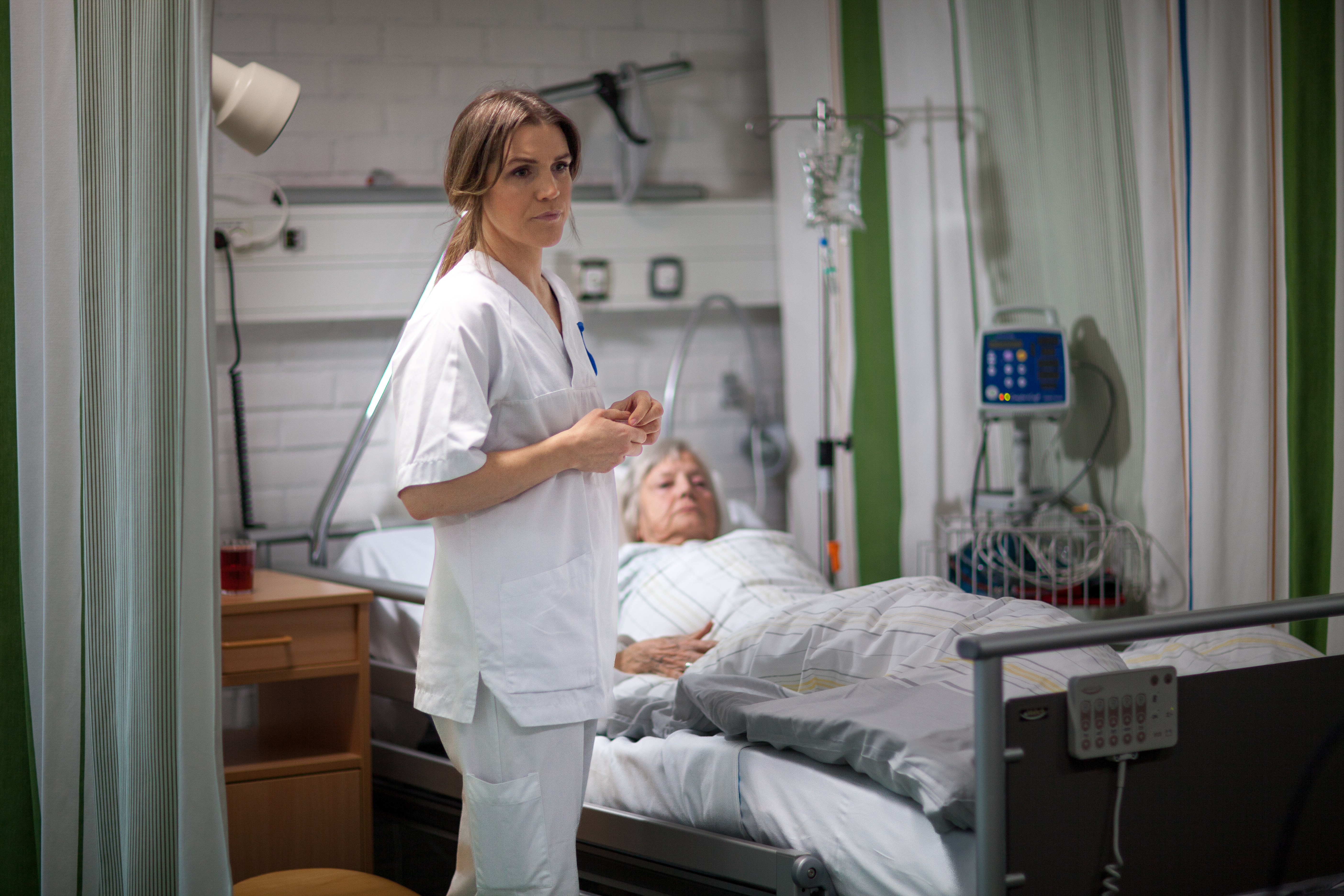
Two separate groups convened for reflective dialogues, each engaging in discussions initiated by brief presentations on ethical concepts to stimulate contemplation. The themes explored encompassed dignity, the encounter between healthcare providers and patients, ethics in management, and the cultivation of ethical competence. These topics were deliberated upon in the context of participants' personal experiences and real-life stories from their professional practice.
The project was conducted in 2019/2020, and the project findings have been disseminated across three publications.
Afterwards, we pursued funding and established contacts with professional actors. A script was drawn up with inspirationf rom the project ‘What promotes ethical practice’. Five short films were produced which are utilized for guidance, lectures, and to prompt reflections during diverse academic sessions. This initiative paved the way for a new research project: ‘Reflective Dialogues on Dramatised Narratives in the Context of Education and Ethics’ which is carried out in 2022/2023
Project leader is Grethe H. Bjerga, Associate Professor, Faculty of Health Sciences at the University of Stavanger.
Publications:
- Koskinen C, Kaldestad K, Rossavik BD, Ree Jensen A, Bjerga G. H. (2022). Multi-professional ethical competence in healthcare – an ethical practice model. Nurs Ethics. 2022 Jun; 29(4): 1003–1013. doi: 10.1177/09697330211062986
- Koskinen C, Kaldestad K, Rossavik BD, Ree Jensen A, Bjerga G. H. (2022). Leader as maintainer of multi-professional ethical competence in healthcare practice. suppl, 2022 Journal of Nursing Science, Volume 34. Tidskriften Hoitotiede
- Bjerga G. H. Kaldestad K, Rossavik BD, Ree Jensen A, Koskinen C. (2023). Møtet mellom helsepersonell og pasient – en grunn for å fremme og å opprettholde en etisk kompetanse. Submitted to Nordisk tidskrift for Helseforskning
Talking about binge eating – a qualitative explorative study
The project developed and evaluated a treatment program for binge eating problems at a district psychiatric centre in Southwest Norway.

The project started out as an internal clinical project where the implementation was supported by the Stavanger University Hospital, and founded by Stavanger University Hospital and University of Stavanger. The project had a qualitative implementation design.
The intervention
A group program was designed and implemented in a District Psychiatric Centre for patients with binge eating problems. Research based elements from affect awareness therapy and therapeutic writing were implemented in a cognitive approach. This new program was developed after more than 10 years’ experience of a cognitive program and was based on patients' evaluation: they missed a greater focus on emotional eating. We implemented affect awareness and therapeutic writing in the revised intervention, and this was the focus for the in-depth study.
The program was implemented at an outpatient clinic, weekly group meetings of 3 hours per week for 11 weeks. The program was designed to reflect and understand one's own experiences of overeating. The group reflections were discussed considering the ambivalence towards change, and how the 11 emotions affect the relationship with body, weight, and food. The intervention was intended to create a safe, reflexive, non-judgmental environment with a psychological approach. Participants were given specific writing exercises focusing on the specific emotion in each session.
The study
The overall aim of the study was to gain a deeper understanding of the mechanisms behind bingeing in people who attended treatment for binge eating or psychological treatment for obesity. The following objectives for the sub-studies was formulated:
- To describe and systematize existing literature on experiences with treatment related to binge eating disorder and obesity.
- To develop and evaluate a program for patients seeking psychological help related to binge eating.
- To explore and describe in-depth experiences of the therapeutic writing process in people participating in a binge eating treatment program.
- To investigate affect consciousness in people who participate in group therapy.
- To investigate patients' perceptions of working with affect awareness therapy, therapeutic writing, and the importance of such treatment for binge eating.
We used a qualitatively exploratory method with individual interviews and focus group interviews. Data was collected during the course of treatment and after the treatment. Exploring patients' in-depth knowledge help to raise the patient's voice and can thereby help increase clinicians' general understanding of the problem.
Publications
- Therapeutic writing in a programme for binge eating disorder—A tool to come closer to clarifying feelings. Oftedal, Eileen; Ueland, Venke Irene; Rørtveit, Kristine. 2022, Scandinavian Journal of Caring Sciences.
- Patients' experience of attending a binge eating group treatment program - qualitative evaluation of a pilot study. Rørtveit, Kristine; Furnes, Bodil; Dysvik, Elin; Ueland, Venke Irene. 2021, Sage Open Nursing.
- Struggle for a Meaningful Life after Obesity Treatment—A Qualitative Systematic Literature Review. Rørtveit, Kristine; Furnes, Bodil; Dysvik, Elin; Ueland, Venke Irene. 2017, Open Journal of Nursing.
Dignity in fragile older women receiving daily municipality care
The goal of this study was to deepen our understanding of the significance of dignity in the lives of frail older women who require daily assistance from municipal services.
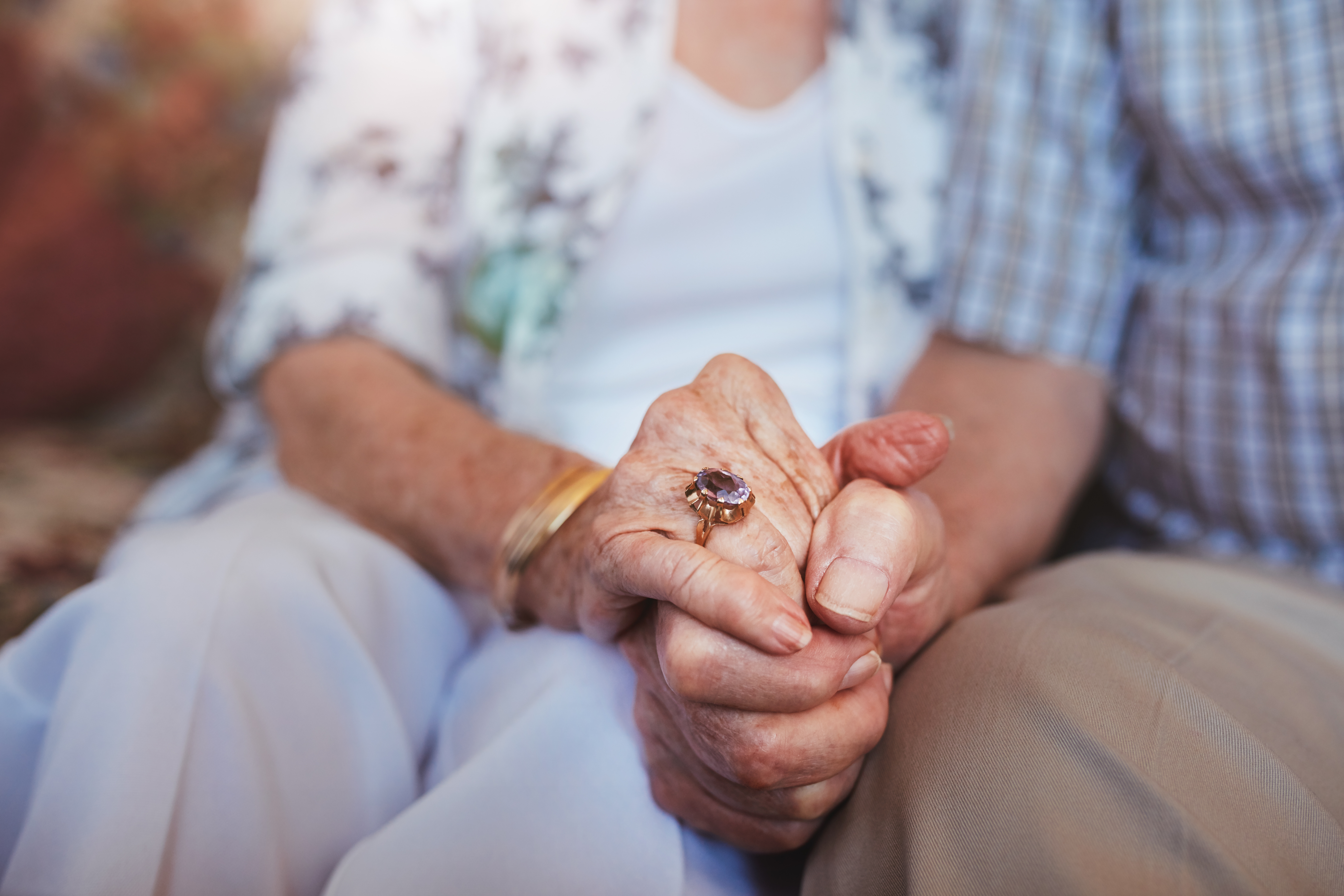
Dignity is a crucial ideal in the care of older people in Norway, evident not only in public guidelines but also in professional ethical guidelines for nurses. Older individuals who receive help multiple times a day from home care services is often frail due to various diagnoses and associated medication. Simultaneously, they often experience a shrinking social network as friends become dependent on public support or pass away. These factors make these older adults particularly vulnerable and reliant on assistance from the municipal service.
We conducted qualitative in-depth interviews with 10 frail older women, aged 66 to 91 years, who received help from the municipal service. The interview themes revolved around reflecting on life in light of dignity. However, in this specific sub-study, we focused on how they experienced visits from home care nurses. The study was carried out in Norway.
Our research revealed two main themes:
- Affirming Encounters Enhance Human Worth: For these women, dignity is closely tied to feeling seen and understood by individual nurses. This recognition occurs during conversations and even in the context of personal care.
- Lack of Confirmation as a Human Being Undermines Human Dignity: Conversely, when they are not acknowledged or validated, these women experience a sense of suffering. This lack of recognition appears to stem from staff’s lack of competence or inadequate continuity in care.
The study provides valuable insights into how these women share fragments of their unique life stories. The research was conducted in 2011 and was funded by the University of Stavanger.
Project leader: Associate Professor Kari Kaldestad. Supervisor on the PhD project was professor emerita Katie Eriksson and Dagfinn Nåden, both from Åbo Akademi in Vasa, Finland
Publication:
Kaldestad, Kari; Nåden, Dagfinn (2022). Dignity in fragile older women receiving daily municipality care. Nursing Ethics. ISSN 0969-7330. Volum 0(0). s.1-10.
Becoming a caring nurse
The project aims to gain knowledge of the meaning of reflection, and how reflection grounded in caring theory can deepen the students’ understanding of caring and their professional formation of becoming a caring nurse.
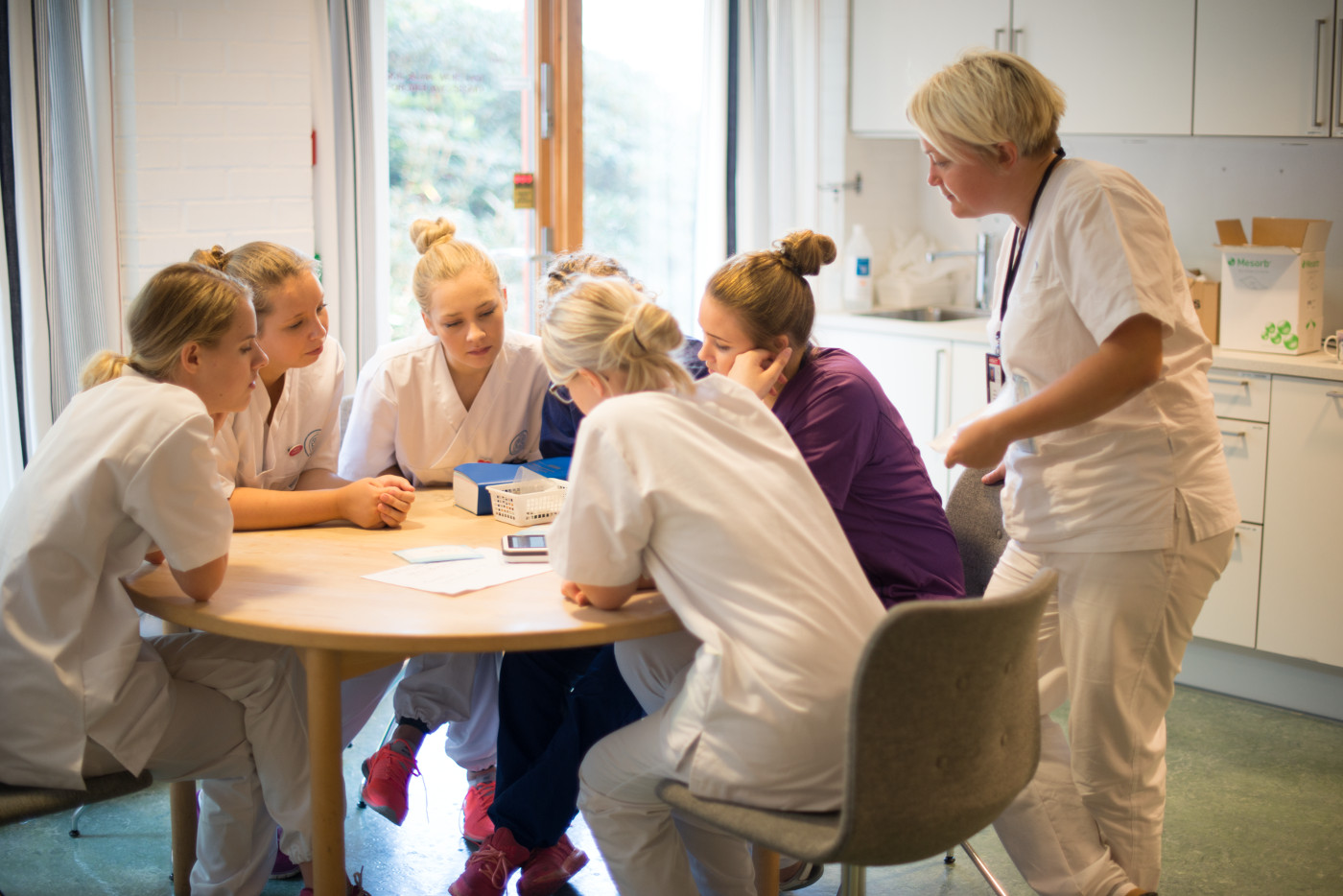
The appropriation of caring theory provides a foundation for the nurse students to see themselves within a broader perspective and is important for mutual support in the professional formation of becoming a caring nurse. The expected outcome of such integration is a nursing curriculum that progressively supports the development of nursing students professionally and personally in the formation of becoming a caring nurse.
Project leader: PhD candidate Turid Anita Jaastad with supervisors Professors Venke Ueland & Camilla Koskinen)
Project owner: Åbo University Vasa Finland
FOC framework: Co-reflection - a supervision methodology for nursing students in practice?
The project explores nursing students' experiences with co-reflection on practice narratives based on the Fundamentals of Care (FOC) framework.

The teachers in the FOC-project wanted to explore nursing students' experiences with co-reflection on practice narratives based on a defined framework, to gain a deeper understanding of the student's learning and formation process in clinical practice.
In a new model for supervision, students, teacher, and supervisor from practice met for co-reflections every week, apart from the weeks with assessments. In supervision, the Fundamentals of Care (FOC) framework was used to pay attention to the core and complexity of nursing. Co-reflection takes place in supervision where people with diferent experiences, knowledge, and perspectives reflect together.
The study has a qualitative design. 47 students participated and data was collected in seven practice periods, in specialist health services. The data material, which was written reflection notes, was analyzed using thematic analysis. Four teachers followed each group of students, with 6-8 students in each group. After each completed practice, the students were invited to reflect on the importance of co-reflection.
The preliminary results suggest that co-reflection in supervision, where theory is related to stories from practice, promotes new understanding and knowledge. This understanding and knowledge may contribute to competence and quality improvement in the performance of nursing care. Education should facilitate supervision and reflection combining care for the students while stimulating their learning and formation process toward becoming a nurse.
Project group: Grethe Heidi Bjerga, Tone Brandeggen, Turid Anita Jaastad and Janet Bakken
A life worth living - about men's health
The research project seeks to gain a deeper understanding of men's experiences of loss after major life changes, and how it affects their lives and health.

15 interviews have been conducted with men aged 30-55 years.
The collaboration partners were Western Norway University of Applied Science, at Stord, VID Specialized University, at Sandnes and Åbo Akademi University in Finland.
The project was conducted in 2020-2023, and the project findings have resulted in three academic publications. The research project continues, and is focused on how men experience parental alienation and the consequences for their health.
Project leader: Kari Kaldestad, associate professor, University of Stavanger
Publications:
- Koskinen, C, Nyholm, L, Thorkildsen, KM Haga, BM Wallgren, GC Kaldestad K. Health as a movement between suffering of life and meaning in life for men who have experienced transitions in life. Scandinavian Journal of Caring Sciences 2023
- Kaldestad K, Nyholm L, Thorkildsen KM, Haga, BM Wallgren, CG, Koskinen, C. A Caring Science study about loss and health after life changes. International journal for human caring 2024
- Koskinen, Camilla Ann-Louise; Kaldestad, Kari; Thorkildsen, Kari Marie; Wallgren, Gry Ciekals. For the good of the children - Life and ethical values when undergoing paternal alienation and involuntary loss of paternity. Scandinavian Journal of Caring Sciences 2023
Exploring the patients' perspective on death at the end of life - a qualitative study
In her doctoral project, Janet Bakken will explore patients' perspective on death in the final phase of life.
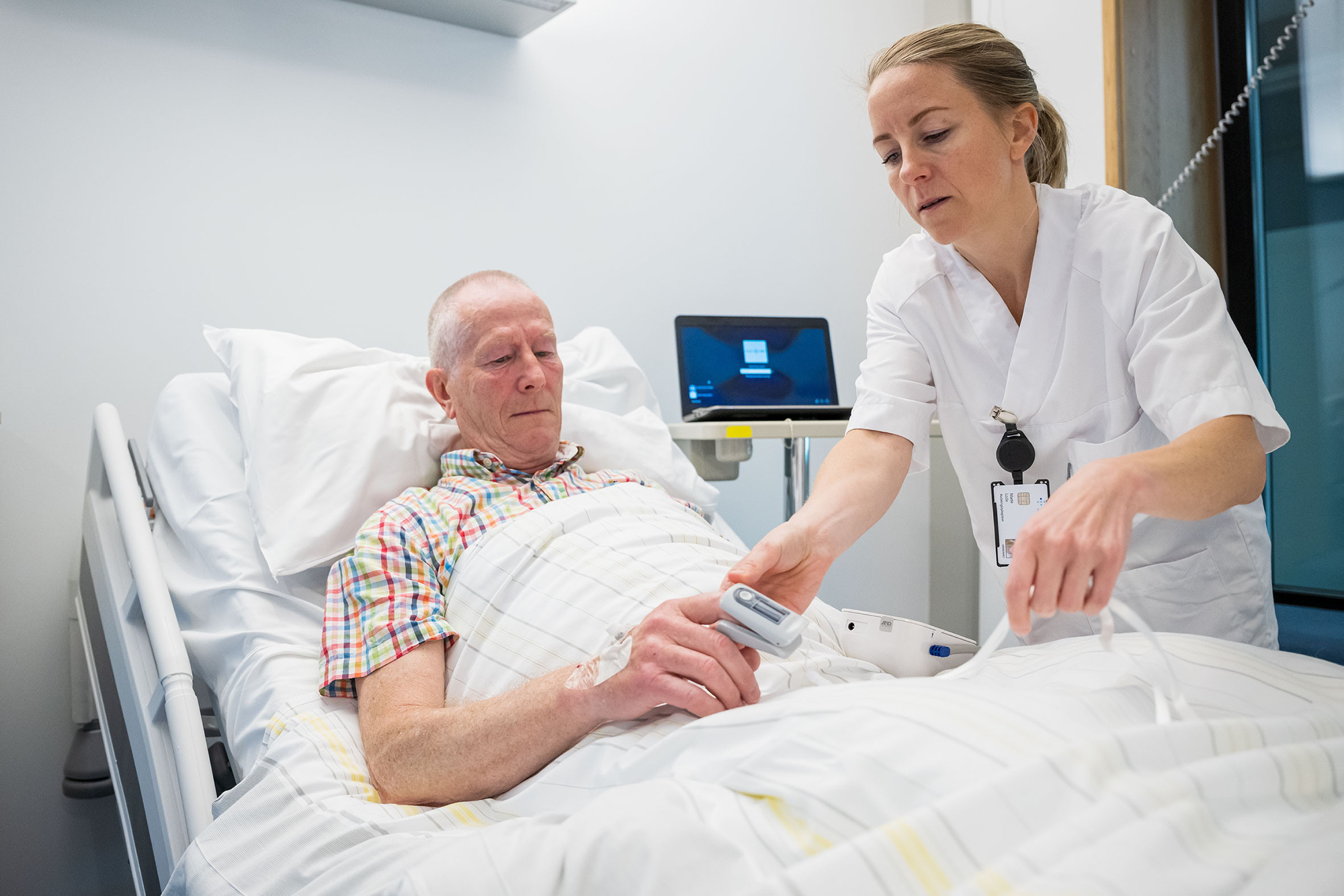
This PhD project aims to gain new knowledge of patients' perspectives on death at the end of life, to provide in-depth information for healthcare professionals to be supported in providing good end-of-life care, increasing patient involvement, and reducing futile treatment, contributing to well-being at the end of life and dignified death.
In Western countries, end-of-life care has moved from a family and community setting to institutions in the healthcare system, where dying has become more medicalized, and death and dying have become unfamiliar. This may lead to a conspiracy of silence about death, sometimes initiated by patients, other times by relatives or the staff, making conversations about death difficult. The author and psychiatrist Irwin Yalom compares facing death to staring at the sun: you can stand only so much of it. But openness about death may also shed light on life, allowing us to make choices based on the fact that we shall all die sometime. The Lancet Commission describes in the «Report of the Lancet Commission on the Value of Death: bringing death back into life» a wish for death to be recognized as not only normal but also valuable. Death and life are bound together, without death there would be no life. Rediscovering this value may help care at the end of life.
This research project has a qualitative, interpretative design and comprises three studies:
- Literature review (qualitative metasynthesis) to give an overview of the qualitative research literature on patients at the end of life’s perspectives on death.
- Individual interviews to explore patients' perceptions of openness about death at the end of life.
- Individual interviews to illuminate the meaning of death as described by patients at the end of life, focusing on existential dimensions.
Janet Bakken is a palliative care nurse and holds a master’s degree in health sciences.
Fundamentals of Care (FOC)
A collaborative project introducing the FOC-framework at Stavanger University hospital.
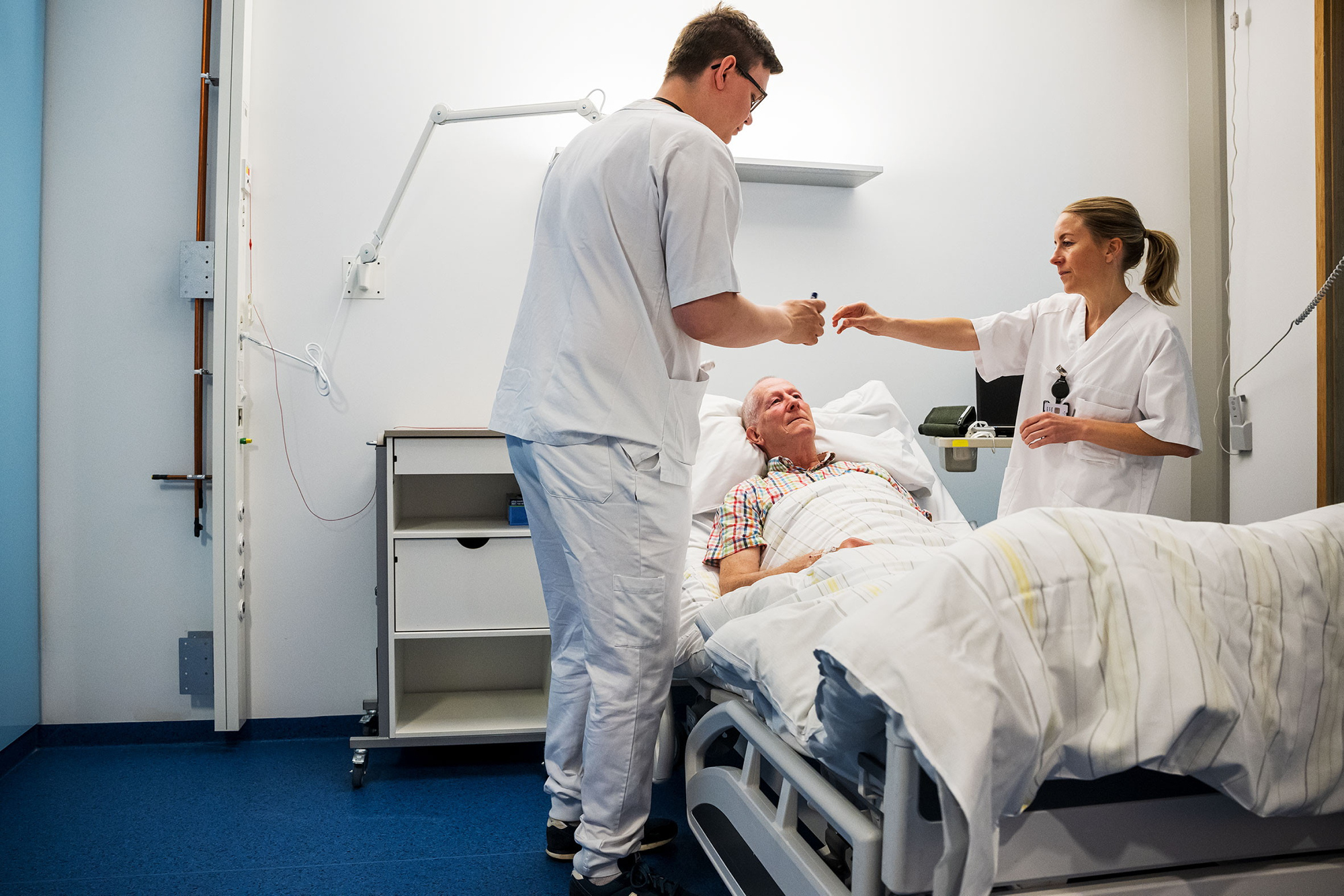
In 2019, teachers from the University of Stavanger (UIS) were invited to join a working group to introduce the framework Fundamentals of Care (FOC) at Stavanger University Hospital (SUS). The working group is directed by Kirsten Lode, head of health research in the Research Department at SUS.
The FOC framework consists of three dimensions. The inner core of the framework emphasizes the nurse-patient relationship as a basis for nursing. The second circle focuses on the integration of physical, psychosocial, and relational dimensions in nursing, and the outer circle, has a focus on health organizations and contextual dimensions that influence the practice of nursing. The purpose of the introduction of the FOC framework to staff in the hospital is to raise awareness both of the importance of establishing a good relationship between patient and nurse and of the patient's need for nursing in today's hospitals where nursing is often task-focused.
A collaboration has also been initiated between SUS, UiS, Aalborg University Hospital, and Aalborg University. Several of the working group's members are also members of the international learning network International Learning Collaborative on Fundamentals of Care (ILC).
Researchers
PhD fellows
Department of Caring and Ethics
Department of Quality and Health Technology
Department of Quality and Health Technology
Department of Caring and Ethics
Associated researchers and fellows
- Elin Salemonsen, associate professor, Western Norway University of Applied Sciences
- Kari Thorkildsen, associate professor, Western Norway University of Applied Sciences
- Britt Marit Haga, associate professor and Head of Department, University of Stavanger
- Christophe Eward Kattouw, PhD fellow, SHARE - Centre for Resilience in Healthcare, University of Stavanger

